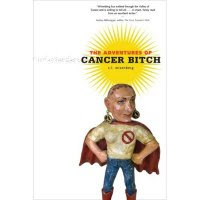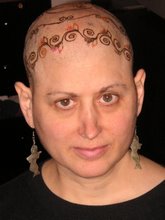When we were in southern Maine in July we walked along the beach, got our legs wet, rinsed off, then started back up the road to our motel. This was during a nation-wide heat wave, and thus the cool temperatures that we had been seeking on the coast had eluded us. They were not within reach. The cool temperatures taunted us. From a large distance. So large that we did not know where these increasingly mythical cool breezes were. In Canada, maybe? Iceland? Greenland? Maybe. Or some place on the other side of the equator where it was already (or still) winter. But not in Ogunquit, where we had stationed ourselves, about a mile from the beach.
On the way back from said beach, two examples of what they call the official state l bird of Maine--the horsefly--bit my legs, one fly per leg, one bite per fly.

Both legs started itching and I started rubbing them against one another while I was walking so that I could scratch while going forward. And so for a few days I was itching all over.
This is not an unknown state for Cancer B(itch), whose polycythemia vera and accompanying itch have been
documented on these cyber-visible-non-dimensional non-pages. The aforementioned blood cancer causes the itch. It was first manifested as itchiness after showering. One woman, Cancer B(itch)'s temporary dermatologist in Massachusetts, told her this summer, had
apres-bain itching before she could be diagnosed with polycythemia. Which gives one pause. To have a symptom of a disease before your body registers that you have the disease. If that wouldn't make a person crazy, I don't know what would.
A Personal History of the Itch until Now:
The itch is as mean as a horse fly. It causes all-over itching, even after benadryl, 24-hour antihistamine, gabapentin and aspirin. In the emergency room, she discovers Atarax, and swoons.
The Friendly Hematologist said we will have to try Interferon if we can't control the itch.
But then she tells Cancer B(itch) of a dermatologist at Fancy Faculty Foundation who specializes in skin conditions caused by non-skin-related conditions.
The Quick-speaking, Quick-moving Dermatologist prescribes phototherapy three times a week, which means that three times a week Cancer B(itch) stands naked in a tank that emits purple light, UVB rays, that are successful in calming the itch. She still must keep taking antihistamines.
After a year, another dermatologist in the practice prescribes the phototherapy just twice a week, because it is doing its job. Cancer B(itch) has built up her tolerance and practice so that she stands for six minutes each time in the tank.
Cancer Bitch goes to western Mass. on a fellowship, and locates a dermatologist who provides phototherapy in a little folding tank upstairs from his little cottage of an office. He believes in patient-directed care, and so Cancer B(itch) continues her phototherapy for five to six minutes at a pop (Fancy Foundation has failed to send her medical records, but the dermatologist trusts her), twice a week. Her itch is under control, with the light and the antihistamines.
After the fellowship, she and L become cool-seeking devices on their way to New Hampshire and Maine beaches.
Enter the horse fly.
Cancer B(itch)'s itching is uncontrollable, except when she's inside in the air conditioning. L originates a plan to return to western Mass. for phototherapy. They cross three state lines in one day.
She is light-therapied.
She is less itchy.
The dermatologist opines that there are new allergens in New England that are causing the strong reaction.
It is better back in Chicago. For a bit.
This Saturday she and L ride their bikes about three miles to a union picnic. Her legs are itching, though she's taken a 24-hour antihistamine. At the picnic, it's worse. There is no air conditioning available. She takes a generic Atarax and after about an hour, the itching stops. But gets worse later that day, despite Atarax, and throughout the weekend when she goes outside.
There are theories:
1. It's the heat.
2. It's the humidity.
3. It's both. Cancer B(itch)'s theory is that it is heat, as well as the humidity, which is a sign of, well, general wetness, which indicates lots of mold spores floating around, mold to which she is allergic. The allergy usually causes a reaction in her lungs but for some reason the reaction is going straight to her legs (unlike food, which goes straight to the hips--you knew that was coming) because her skin is now the weakest point. It is compromised.
She is afraid to leave the house. This is not agoraphobia. This is
φαγούρα-phobia. She and L start to walk to the card store about five blocks away and they have to go back and get in the car. It is that bad.
And what makes this all worse is that at Fancy, the nurses have made her start her treatments from scratch, beginning at 37 seconds in the tank, instead of six minutes, because that's the policy, which is based on the theory that all light tanks are different, so you never know the strength of the one you used elsewhere. You'd think by now there would be ways to measure that.
And--she can't up her frequency in the tanks to three times a week, because the dermatologist prescribed twice a week. And they can't call that dermatologist because she's on leave. The end. You'll be back up to six minutes soon, the nurse says, though that isn't true.
The Original Dermatologist is very busy (though he is quick) and Cancer B(itch) gets an appointment with him in late September.
Finally today she takes bureaucracy into her hands and calls the Quick Dermatologist's office at Fancy, and talks to an overworked, indifferent worker who puts her on hold about seven times in the middle of conversation. Success is achieved in the form of getting the worker to agree to take a message for the Quick Dermatologist. This is so very different from the way things worked with the Massachusetts Dermatologist, who was casual about appointments and writes a health blog and majored in Comp Lit in college.
I know this account is tedious, so tedious that maybe no one will ever get to this line that acknowledges the tedium. My friend S is recovering from a hysterectomy and waiting to hear whether the nodes that were removed are cancerous. I apologize for telling her about my itch. She says no no it's fine it makes her feel more balanced in the world to hear other people's problems, makes her feel less that she's only thinking of her own ills. As Steve Goodman sang,
And it ain't too hard it to get along with somebody else's troubles,
They don't make you lose any sleep at night.
As long as fate is out there burstin' somebody else's bubbles
Everything is gonna be alright.
And everything is gonna alright.

Steve Goodman
photo--he died of leukemia
Photo of black horse fly from
here.




















































